In a world, where quick fixes and instant energy solutions are sought after, energy drinks have become a staple for many. Central to their energizing effect is caffeine, the powerhouse stimulant that fuels our tired minds and exhausted bodies. Let us review the caffeine content of some of the popular energy drinks out there and compare two prominent brands: Bang Energy Drink and Celsius Energy Drink.
Bang Energy Drink: A Powerhouse of Caffeine and Unique Ingredients
What is Bang Energy Drink?
Bang Energy Drink is a well-known brand in the world of energy drinks, prized for its ability to deliver a potent burst of energy. This carbonated beverage is carefully formulated to enhance mental focus, physical performance, and overall energy levels.
Bang Caffeine Content
Bang Energy Drink gets its kick from caffeine, which is often sourced from coffee beans. The exact caffeine content can vary depending on the flavor and formulation, but a 16-ounce (473ml) can typically contain about 300 milligrams of caffeine. That’s more caffeine than you’d find in a cup of coffee or most other energy drinks.
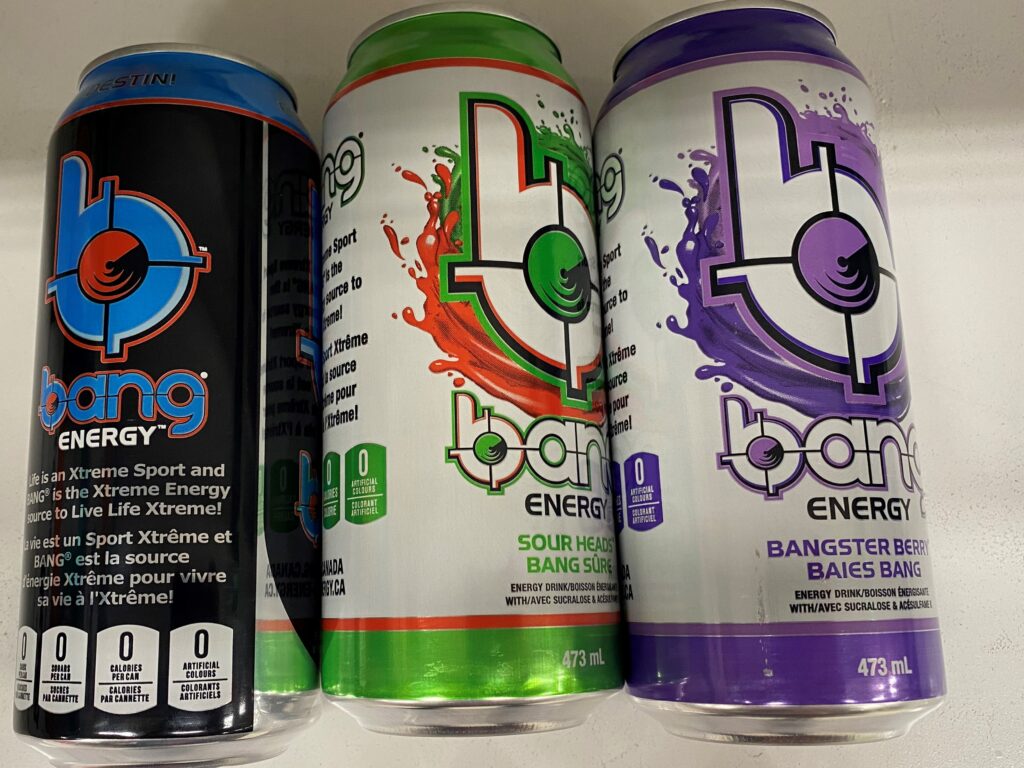
Bang Nutrition Facts
Bang Energy Drink is a sugar-free beverage sweetened with artificial sweeteners like sucralose and acesulfame potassium. This makes it a low-calorie option for those looking to cut back on sugar. It also contains essential B vitamins and unique ingredients like “Super Creatine,” which is believed to offer increased strength and muscle endurance.
Is Bang Energy Drink Bad for You?
The primary concerns with energy drinks like Bang revolve around their high caffeine content. Excessive caffeine consumption can lead to issues such as an increased heart rate, anxiety, and sleep disturbances. It’s not recommended for children and breastfeeding women. However, for healthy adults in moderation, occasional consumption may not have significant adverse effects. It’s crucial to be mindful of the potential risks and practice moderation.
Celsius Energy Drink: A Healthier Alternative
What is Celsius Energy Drink?
Celsius Energy Drink is positioned as a fitness and energy drink that offers a healthier alternative to traditional sugary energy drinks. It’s marketed as a way to boost energy levels, enhance performance, and aid in calorie burning.
Celsius Caffeine Content
A 12-ounce (355 ml) can of Celsius typically contains 200 milligrams of caffeine. It’s sourced from natural sources like green tea extract and guarana seeds. This provides a gentler and more sustained energy boost compared to synthetic caffeine found in many other energy drinks.
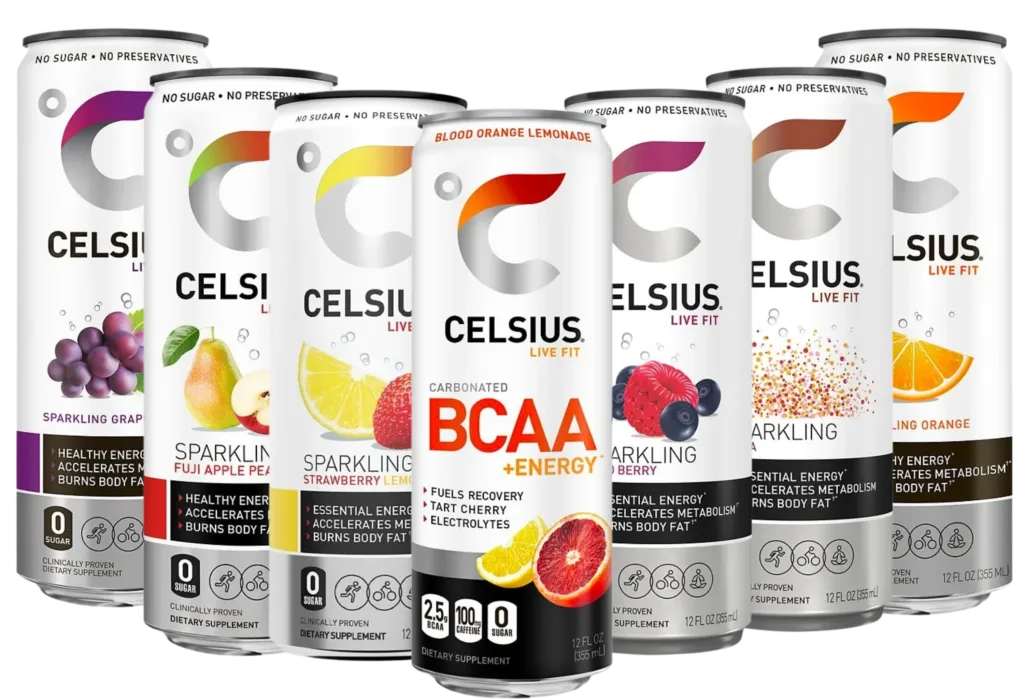
Celsius Nutrition Facts
Celsius Energy Drink is known for using natural ingredients and has a low-calorie profile. A 12-ounce can provide 10 calories, 2 grams of carbs, and zero grams of sugar. It also includes B vitamins for metabolism support, electrolytes for hydration, and ginger root extract for added flavor and potential digestion benefits.
Is Celsius Energy Drink Bad for You?
Like other energy drinks, Celsius should be consumed in moderation. While it uses natural ingredients and has lower sugar content, it still contains caffeine and may not be suitable for everyone, especially those sensitive to caffeine. Moderation is key, and it’s not recommended for children and pregnant women due to its higher caffeine content.
Bang Caffeine Content of Different Flavors:
Bang Energy Drink offers a variety of flavors, and each one contains 300 milligrams of caffeine per 16-ounce (473 ml) can. These flavors include Bangster Berry, Delish Strawberry Kiss, Peach Mango, Rainbow Unicorn, Sour Heads, Blue Razz, Cherry Blade Lemonade, Black Cherry Vanilla, and Latte.
Celsius Caffeine Content of Different Flavors:
Celsius Energy Drink boasts a wide range of flavors, all maintaining a consistent caffeine content of 200 milligrams per 12-ounce (355 ml) can. Popular flavors in the Celsius lineup include Sparkling Orange, Sparkling Lemon Lime, Sparkling Wild Berry, Sparkling Cola, Peach Mango Green Tea, Raspberry Acai Green Tea, Sparkling Watermelon, Sparkling Grape Rush, Sparkling Kiwi Guava, Sparkling Green Apple Cherry, Sparkling Strawberry Lemonade, Sparkling Mango Passionfruit, and Sparkling Strawberry Guava.
The table below provides a quick and clear comparison of Bang Energy Drink and Celsius Energy Drink, highlighting key features such as caffeine content, ingredients, sugar content, and popular flavors. It can help consumers make informed choices based on their preferences and dietary needs.
| Feature | Bang Energy Drink | Celsius Energy Drink |
|---|---|---|
| Purpose | Provides a potent burst of energy. | Positioned as a fitness and energy drink. |
| Caffeine Content | 300mg per 16 oz (473ml) | 200mg per 12 oz(355 ml) |
| Caffeine Source | Often sourced from coffee beans. | Sourced from natural sources like green tea extract and guarana seeds. |
| Sugar Content | Sugar-free with artificial sweeteners. | Low-calorie with zero grams of sugar. |
| Additional Ingredients | Contains “Super Creatine” and B vitamins. | Includes B vitamins, electrolytes, and ginger root extract. |
| Concerns | Concerns about high caffeine content. | Should be consumed in moderation due to caffeine sensitivity. |
| Popular Flavors (Caffeine Content per Serving) | Various flavors, all with approximately 300mg per 16 oz can. | Multiple flavors, all with approximately 200mg per 12 oz can. |
Energy Drink Caffeine Chart comparing various Energy Drinks Caffeine Content:
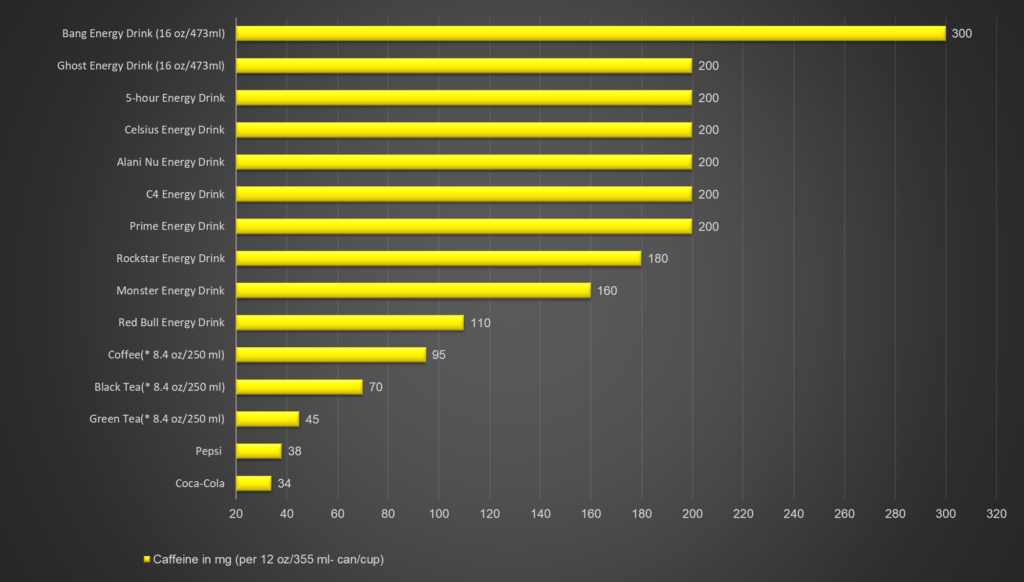
Energy Drinks Caffeine Chart:
Now that we’ve looked at the caffeine content of Bang and Celsius Energy Drinks, let’s compare them to some other common beverages:
| Beverage | Caffeine Content (per 12 oz./355 ml) |
| Coca-Cola | 34 mg |
| Pepsi | 38 mg |
| Green Tea (*8.4 oz./250 ml) | 45 mg |
| Black Tea (*8.4 oz./250 ml) | 70 mg |
| Coffee (*8.4 oz./250 ml) | Approximately 95 mg |
| Red Bull Energy Drink | 110 mg |
| Monster Energy Drink | 160 mg |
| Rockstar Energy Drink | 180 mg |
| Prime Energy Drink | 200 mg |
| C4 Energy Drink | 200 mg |
| Alani Nu Energy Drink | 200 mg |
| Celsius Energy Drink | 200 mg |
| 5-hour Energy Drink | 200 mg |
| Ghost Energy Drink (16 oz./473 ml) | 200 mg |
| Bang Energy Drink (16 oz./473 ml) | 300 mg |
It is evident that both Bang and Celsius Energy Drinks pack a punch in terms of caffeine content compared to traditional soft drinks like Coca-Cola and Pepsi. However, they fall within the range of caffeine found in other energy drinks like Red Bull and Monster.
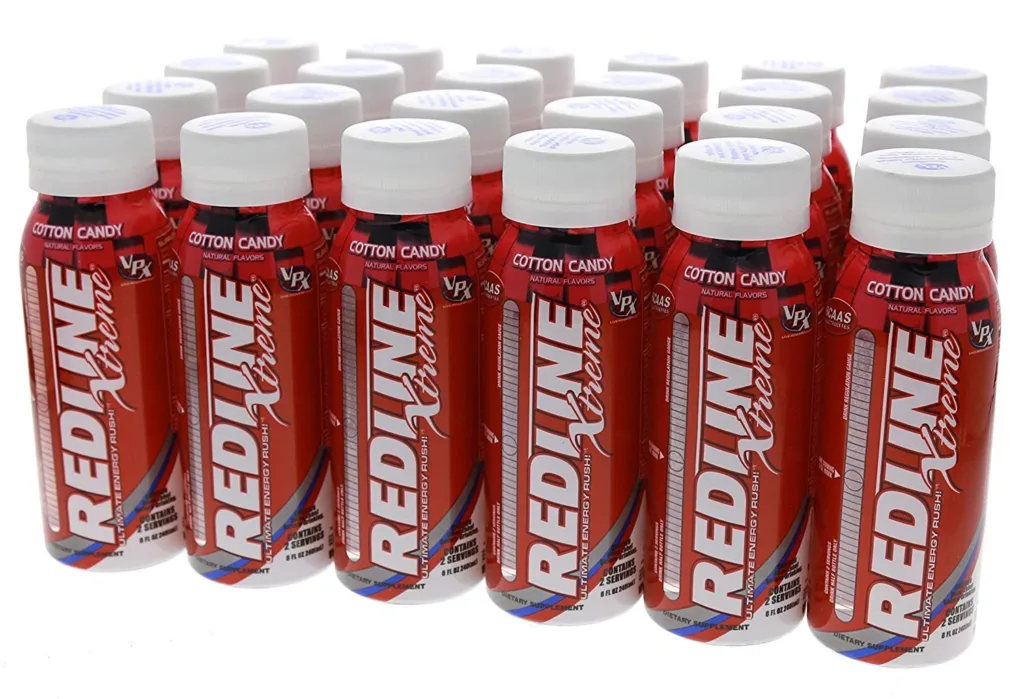
The Highest Caffeine Energy Drink
Redline Xtreme Energy Drink takes the crown with a whopping 316 mg of caffeine per 8-ounce serving (240 ml) If you’re seeking the highest caffeine kick. It’s important to remember that while caffeine can provide a temporary energy boost, moderation is key. Excessive caffeine intake can lead to unwanted side effects, including jitters, sleeplessness, and increased heart rate.
In the end, both Bang and Celsius Energy Drinks offer unique features and caffeine content that cater to different preferences and needs. When choosing between them or any energy drink, it’s crucial to consider your caffeine tolerance, health status, and overall lifestyle. Moderation and awareness of caffeine intake remain paramount in enjoying these beverages responsibly.
Remember, while energy drinks can provide a quick energy boost, the real key to sustained energy lies in a balanced lifestyle, adequate rest, and a well-rounded diet. Caffeine is just one piece of the puzzle.
Please click here if you are interested in my detailed review of these Energy Drinks:


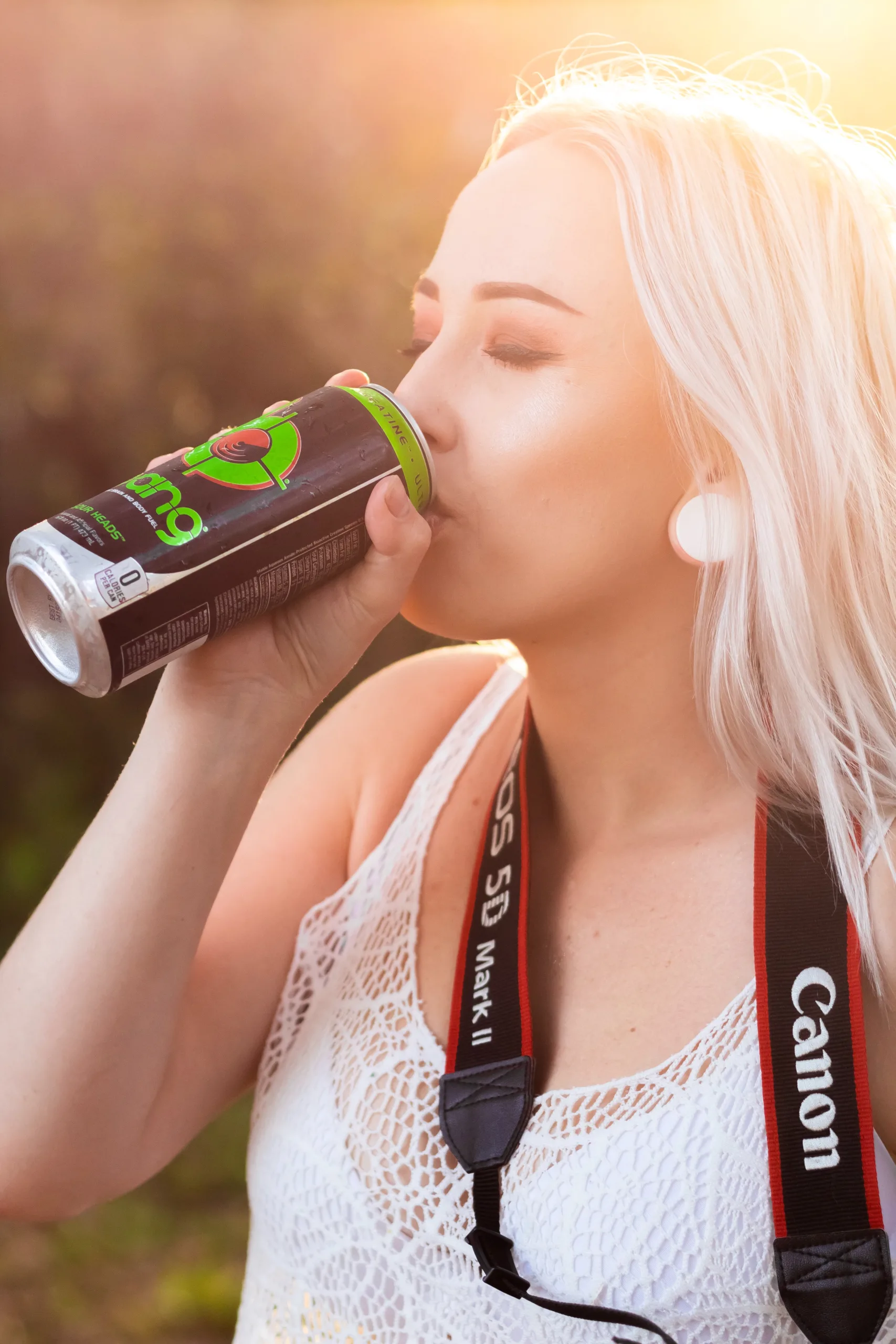
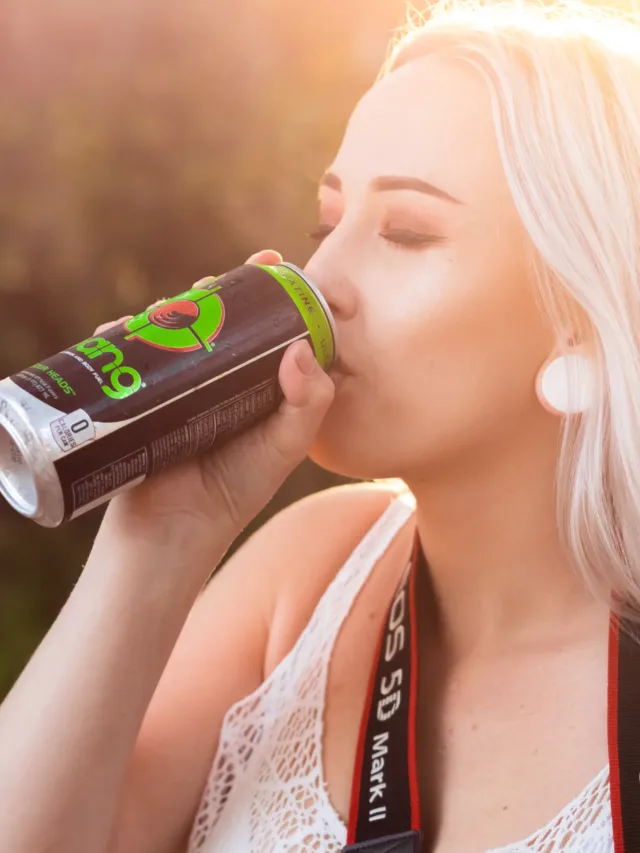
1 thought on “Bang Energy Drink vs. Celsius Energy Drink”
Comments are closed.